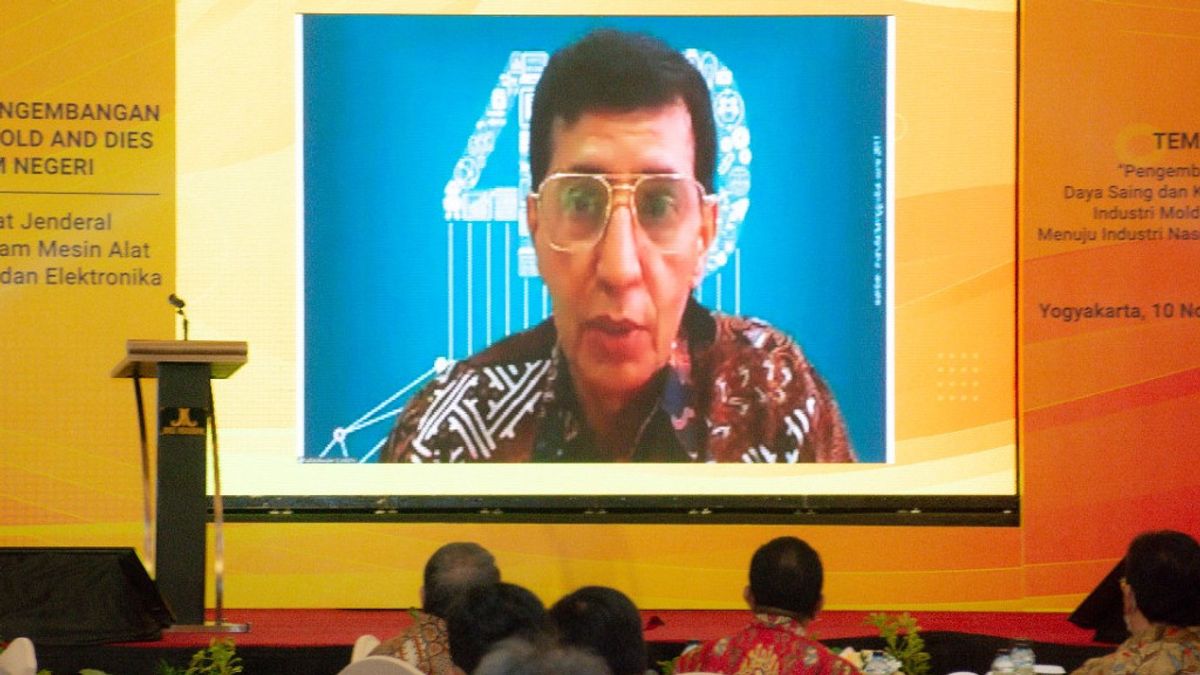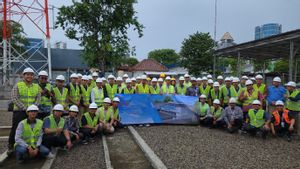JAKARTA - The Ministry of Industry continues to strive to develop the mold, dies, jig and fixture or industry tools. This sector is part of the industrial machinery and equipment industry in the capital goods, components, auxiliary materials, and industrial services sector.
This is in accordance with Government Regulation Number 14 of 2015 concerning the National Industrial Development Master Plan (RIPIN) 2015-2035.
"The mixed, dies, jig and fixture industry is a strategic supporting sector for the machine and equipment industry that produces tools or tools for the user industry, such as the automotive, electronics, and food and beverage industries," said the Director General of Metal, Machinery, Transportation Equipment and Electronics (ILMATE). ) Taufiek Bawazier in Yogyakarta, Thursday, November 10.
He stated that imported, dies, jig and fixture products play an important role in the process of forming the main objects of work before further treatment is carried out, such as heat treatment and finishing processes. Therefore, the machinery and equipment industry is a vital sector in the industrial structure in Indonesia.
"As one of the fundamental sectors, the machinery and equipment industry is useful for supplying capital goods, in the form of machinery and equipment for the manufacturing, construction, mining, energy, agriculture, transportation, and other sectors in order to increase productivity," explained Taufiek.
Taufiek also said that the cold, dies, jig and fixture industry has made a significant contribution to the national economy. As of August 2022, the export performance of the MIND industry has reached US$15.8 million, the ice industry is US$8.7 million, and the jig and fixture industry is US$44 million.
"For the small product market segmentation, the automotive industry is the largest user sector, which reaches 41 percent compared to other sectors, such as the 16 percent electronics industry, as well as the 14 percent equipment and equipment industry," he said.
To minimize the gap between technology and human resources so as to support increasing the competitiveness of the domestic mold, dies, jig and fixture industry, Taufiek suggested the need for collaborative manufacturing from various parties, such as government, industry, and academia.
"Collaborative manufacturing will be realized in the Indonesia Manufacturing Center (IMC) which is being developed by the system and its institutions," he said.
Just so you know, the automotive industry is the sector with the largest users because there are many parts of motorized vehicles, especially the interior that uses plastic raw parts.
Meanwhile, for the market segmentation of Dies products, the automotive industry is also the largest user sector, which reaches 64 percent compared to other sectors.
The English, Chinese, Japanese, Arabic, and French versions are automatically generated by the AI. So there may still be inaccuracies in translating, please always see Indonesian as our main language. (system supported by DigitalSiber.id)













